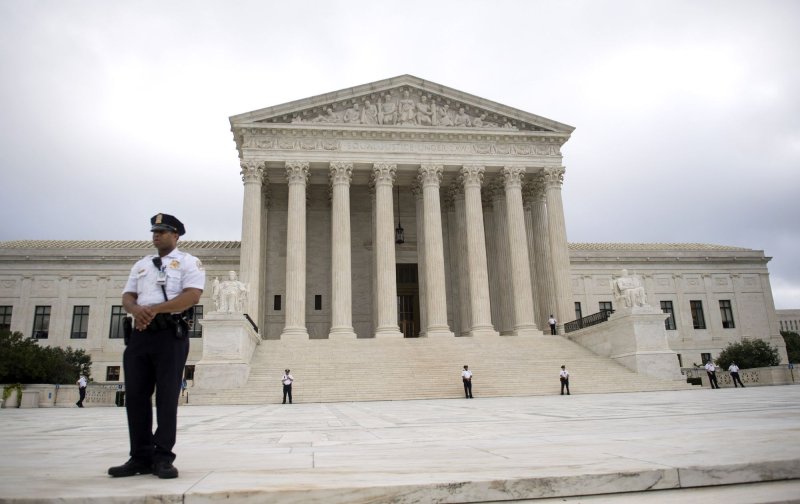Indiana argues that the law is a response to new technological developments that enable a woman to learn of possible disabilities in a fetus early in her pregnancy. Photo by Kevin Dietsch/UPI |
License Photo
EVANSVILLE, Ind., Oct. 15 (UPI) -- Indiana Attorney General Curtis Hill has asked the U.S. Supreme Court to uphold a state law prohibiting women from seeking abortions based on the race, sex or disability of a fetus.
The law, signed in 2016 by then-Gov. Mike Pence, also requires health facilities to treat aborted fetuses as human remains and dispose of them through cremation or burial.
A district judge ruled the law unconstitutional after it was challenged by Planned Parenthood of Indiana and Kentucky. That ruling was upheld by the 7th Circuit Court of Appeals.
"This law ignores long-settled precedent from the Supreme Court that a woman, not the legislature, gets to decide whether an abortion is the right decision for her and her family," said Ken Falk, legal director for the American Civil Liberties Union of Indiana, which is representing Planned Parenthood in the case. "The state's request is yet another attempt by Indiana elected officials to take that decision out of a woman's hands."
Hill argued that the law is a response to new technological developments that enable a woman to learn of possible disabilities in a fetus early in her pregnancy.
"The right to abortion declared by our Supreme Court protects only the decision not to bear a child at all, not a right to decide which child to bear," Hill said in a statement Friday. "States have every reason and right to prohibit abortions from being performed simply as a means of selecting the race, sex or physical condition of a child. Our nation knows only too well the bitter fruits of such discrimination."
Women did not have this ability when the court heard Roe v. Wade, the landmark case in which the court upheld women's abortion rights, Hill argued in his Supreme Court petition.
The addition of Justice Brett Kavanaugh to the court could shift the Supreme Court's balance on the issue to more conservative. Kavanaugh replaces Justice Anthony M. Kennedy, who often served as a swing vote.
During his is confirmation hearings, when senators pressed him on the abortion issue, Kavanaugh told the Senate judiciary committee he considered the abortion ruling as settled.
"As a general proposition, I understand the importance of the precedent set forth in Roe vs. Wade," he said.
But as a lower court judge, he has at times leaned toward restricting abortion access. In 2017, he argued against allowing an undocumented minor in government custody to obtain an abortion. And in a memo he wrote in 2003, he said he believed Roe v. Wade could be reversed.
"I am not sure that all legal scholars refer to Roe as the settled law of the land at the Supreme Court level since court can always overrule its precedent," the memo said.
It's unclear if the court will choose to hear Indiana's appeal. Around 7,000-8,000 new cases are filed with the court each term. Of those, the court hears plenary review -- with oral arguments -- for roughly 80 and disposes about 100 more cases without plenary review.
This case is one of many abortion laws being litigated the the federal court system, any of which could reach the Supreme Court, according to the ACLU.















